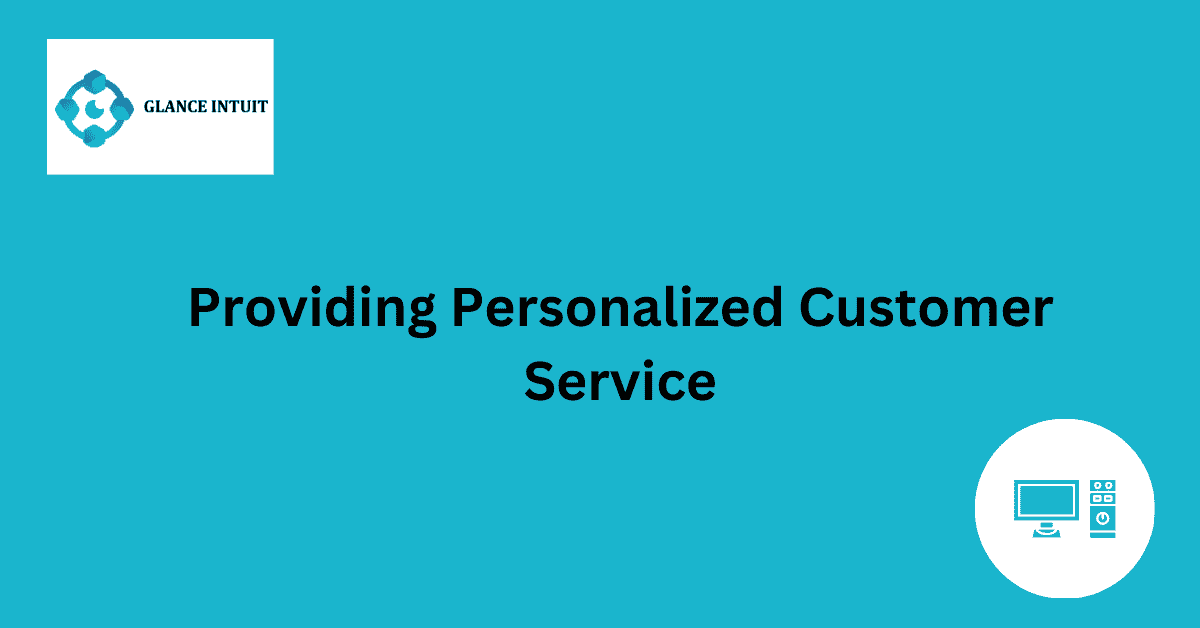Providing Personalized Customer Service
In today’s competitive business landscape, providing personalized customer service has become more than just a trend—it’s a strategic imperative. As customers’ expectations evolve, businesses must adapt by offering tailored experiences that resonate on a personal level. This article delves into the intricacies of providing personalized customer service, exploring strategies, technologies, and best practices that can help businesses forge stronger connections with their customers.
Personalization goes beyond addressing customers by their names; it’s about understanding their unique preferences, anticipating their needs, and delivering solutions that add genuine value. By leveraging data analytics, artificial intelligence, and customer relationship management tools, businesses can unlock valuable insights into customer behavior, preferences, and buying patterns. This knowledge empowers businesses to craft personalized interactions, recommend relevant products or services, and provide proactive support, ultimately enhancing customer satisfaction and loyalty.
Importance of Personalized Customer Service
In today’s competitive business landscape, providing personalized customer service has become more than just a trend—it’s a strategic imperative. As customers’ expectations evolve, businesses must adapt by offering tailored experiences that resonate on a personal level. This article delves into the intricacies of providing personalized customer service, exploring strategies, technologies, and best practices that can help businesses forge stronger connections with their customers.
Understanding Customer Preferences and Needs
Personalization goes beyond addressing customers by their names; it’s about understanding their unique preferences, anticipating their needs, and delivering solutions that add genuine value. By analyzing customer data and feedback, businesses can gain insights into what customers truly want and tailor their offerings accordingly. This approach not only boosts customer satisfaction but also fosters loyalty and long-term relationships.
Leveraging Data Analytics for Insights
Utilizing data analytics allows businesses to gather valuable information about customer behavior, preferences, and buying patterns. By analyzing this data, businesses can identify trends, anticipate future needs, and tailor their services to meet individual customer requirements. This data-driven approach enables businesses to make informed decisions and deliver personalized experiences that resonate with their target audience.
Utilizing Artificial Intelligence for Personalization
Artificial intelligence (AI) plays a crucial role in personalizing customer experiences by analyzing vast amounts of data to predict customer preferences and behavior. AI-powered systems can recommend products or services based on individual preferences, personalize marketing campaigns, and even provide proactive customer support. By leveraging AI technologies, businesses can enhance customer satisfaction and drive engagement.
Implementing Customer Relationship Management Tools
Customer relationship management (CRM) tools are essential for managing customer interactions, tracking customer preferences, and ensuring personalized communication. These tools enable businesses to store customer data, track interactions across various touchpoints, and provide a seamless experience throughout the customer journey. By implementing CRM tools, businesses can streamline processes, improve customer satisfaction, and build stronger relationships with their customers.
Crafting Personalized Interactions for Customers
Personalized interactions involve tailoring communication, products, and services to meet individual customer needs and preferences. By analyzing customer data and leveraging technology, businesses can craft personalized experiences that resonate with their target audience. Whether it’s recommending relevant products, providing tailored solutions, or offering proactive support, personalized interactions can enhance customer satisfaction and foster long-term loyalty.
Recommending Relevant Products and Services
By understanding customer preferences and needs, businesses can recommend relevant products and services that align with individual interests. Whether through personalized recommendations, targeted marketing campaigns, or customized offers, businesses can enhance the customer experience and drive sales. By leveraging data and analytics, businesses can anticipate customer needs and provide tailored recommendations that add value and enhance customer satisfaction.
Providing Proactive Support for Customer Satisfaction
Proactive support involves anticipating customer needs, addressing issues before they arise, and ensuring a seamless experience throughout the customer journey. By leveraging AI-powered chatbots, automated messaging systems, and personalized customer service, businesses can provide proactive support that enhances customer satisfaction and loyalty. By being proactive in addressing customer needs, businesses can build trust, loyalty, and long-lasting relationships with their customers.
Frequently Asked Questions
Our Frequently Asked Questions section aims to provide detailed information on the topic of Providing Personalized Customer Service, with Glance Intuit. Below are some commonly searched queries on Google regarding this topic.
What is the importance of Providing Personalized Customer Service?
Providing personalized customer service is essential for businesses to build strong relationships with their customers. By tailoring the customer experience to individual needs and preferences, businesses can increase customer satisfaction, loyalty, and retention.
How to effectively implement personalized customer service in businesses?
Businesses can implement personalized customer service by collecting and analyzing customer data, understanding customer behavior and preferences, training staff to provide customized solutions, and leveraging technology such as CRM systems and AI tools.
What are the benefits of Providing Personalized Customer Service?
The benefits of providing personalized customer service include increased customer loyalty, higher customer satisfaction rates, improved customer retention, enhanced brand reputation, and ultimately, higher revenue and profitability for the business.
Which companies excel in personalized customer service?
Companies like Amazon, Zappos, and Starbucks are known for their exceptional personalized customer service. They have implemented innovative strategies such as recommendation algorithms, personalized communication, and loyalty programs to enhance the customer experience.
How does Providing Personalized Customer Service impact customer loyalty?
Providing personalized customer service can significantly impact customer loyalty by creating emotional connections with customers, making them feel valued and understood. This leads to higher customer retention rates, increased repeat purchases, and positive word-of-mouth referrals.
How can businesses improve personalized customer service?
Some best practices for businesses include investing in customer data analytics, training employees on empathy and active listening, personalizing communication channels, offering customized solutions, and seeking feedback to continuously improve the customer experience.







